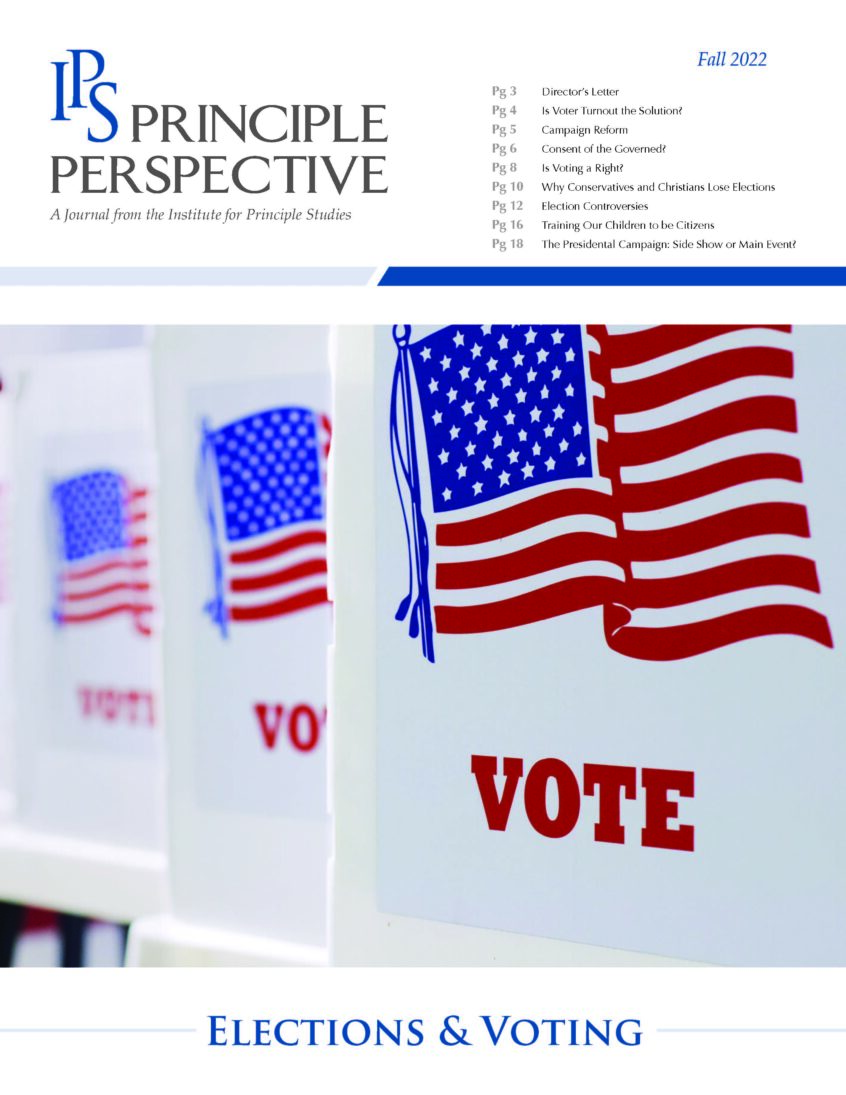Director’s Letter
As we leave the tumultuous 2020 election season behind us and look ahead to the upcoming elections, it is healthy to take a break from rhetoric that generates more heat than light and look at voting and elections from a principled perspective.
Although this is our first journal without our Founder and dear friend, Mike Winther, you will notice that he had already written quite a bit regarding voting. We are grateful to be able to share these gems with you. Moreover, this journal before you is not meant to be a comprehensive work on elections but merely a place to start.
One of the greatest blessings we have as citizens of the United States is the authority to choose our leaders. Though not the only method of accountability, voting is one of the checks and balances built into our system of government.
Biblically speaking, the privilege of voting is seen as good for society in both the civil and ecclesiastical realms. Thus, God lays out guidelines for choosing civil leaders in Exodus 18 and in Deuteronomy 17. He also gives us direction on choosing our church leaders in Acts 6 and 1 Timothy 3 for deacons, and 1 Timothy 3 and Titus 1 for elders. Voting is a gift from God. It is our duty as Christians to use this gift wisely.
From the start of our constitutional system, the most powerful branch of our national government, Congress (and specifically the House of Representatives), was directly accountable to the people with elections being held every two years. Until 1913 and the passing of the 17th Amendment, the states also had a “vote” in our constitutional order. Senators were appointed by, and therefore accountable to, the states they represented.
In order for a voting system to be trusted by its citizens, it must be a trustworthy system. Our current methods (at least in some states) leave room for questioning. As witnessed during the last two presidential election cycles, the party that loses tends to believe the other party somehow stole the election – Clinton in 2016 and Trump in 2020. However, in the article titled, “Election Controversies,” you will see that this is nothing new in our nation’s history. This does not mean, however, that we can’t make our system better. There are ways to do so. In fact, we’ve laid out some principles and ideas for achieving an honest voting system.
In the end, it is important to remember what Mike Winther continually stressed to his audiences: the goal isn’t more voters, but more educated principled voters. We have the leaders we deserve—perhaps even better than we deserve—as elections reflect society. Our goal should be to conform our thinking to God’s revealed will in Scripture—and then share that with our fellow man. God has set limits on civil governments. He has given us a framework for evaluating potential leaders. Voting is one tool God has given us to make sure our leaders submit themselves to His rule. No man has absolute authority, only Jesus. May the Lord give us grace as we labor to regain liberty and uphold justice—one election cycle at a time.

